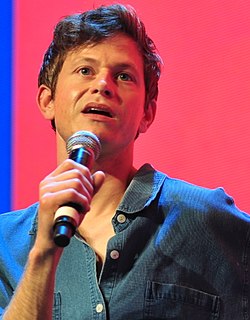A Quote by Marley Dias
Dressing in an androgynous way, mixing up the masculine and feminine, blurring those boundaries - I'm cool with that. No one should ever be limited by stereotypes of gender, just as no one should ever be limited by stereotypes of race.
Related Quotes
Stereotypes are ways of making extremely primitive and simple differentiations. Differentiations of gender, race, class, social status - so ordinary social life is very much built upon a whole repertoire of stereotypes we carry around. And those are immediately laminated onto people, and it isn't just visual.
We all know of course, that we should never ever ever ever ever ever ever ever ever ever ever ever ever ever ever ever ever ever ever ever ever ever ever ever ever ever ever ever ever ever ever ever ever ever ever ever ever ever ever ever ever ever ever ever ever ever ever ever ever ever ever ever ever ever ever ever fiddle around in any way with electrical equipment. NEVER.
The problem with labels is that they lead to stereotypes and stereotypes lead to generalizations and generalizations lead to assumptions and assumptions lead back to stereotypes. It’s a vicious cycle, and after you go around and around a bunch of times you end up believing that all vegans only eat cabbage and all gay people love musicals.



































